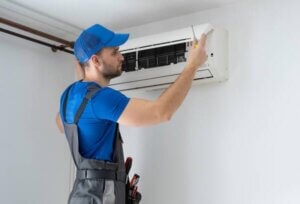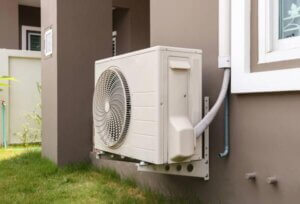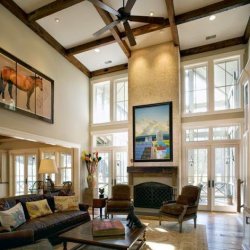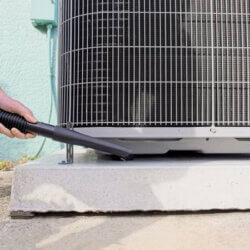
Air conditioning is essential for comfort, especially during hot St. Louis summers. But when an AC unit in a rental property breaks down, the question arises: who is responsible for the repair—the landlord or the tenant? Understanding the legal obligations and best practices for AC repair in rental properties can help both parties avoid disputes and ensure timely maintenance.
Read on to learn more about AC repair for rental properties or contact our experts in St. Louis to schedule your professional air conditioner repair service.
Understanding AC Repair Responsibilities in Rental Properties
When it comes to AC repair for a rental property, responsibility generally falls on the landlord. However, specific circumstances can shift the burden to the tenant. The key factors that determine responsibility include lease agreements, local laws, and the cause of the AC malfunction.
1. Landlord Responsibilities for AC Repair
In most cases, landlords are responsible for maintaining major appliances, including heating and cooling systems. This means they must ensure the AC unit is in working condition when the tenant moves in and handle necessary repairs unless otherwise specified in the lease agreement.
Key landlord obligations include:
- Ensuring the AC system is functioning at the start of the lease
- Conducting routine maintenance and inspections
- Addressing normal wear and tear repairs
- Complying with local housing laws regarding habitability
In St. Louis, rental properties must provide habitable living conditions, which typically include adequate heating and cooling during extreme temperatures.
2. When Tenants May Be Responsible for AC Repairs
While landlords usually handle AC repairs, tenants can be held responsible under certain conditions, such as:
- Negligence or misuse: If a tenant damages the AC unit by failing to replace filters, blocking vents, or improper use, they may be responsible for the repair costs.
- Unauthorized repairs: If a tenant attempts to fix the unit without the landlord’s permission and causes further damage, they may need to cover the expenses.
- Lease agreement clauses: Some leases explicitly state that tenants are responsible for minor maintenance tasks, such as replacing filters or clearing drain lines.
To avoid disputes, tenants should report AC issues promptly and follow any maintenance guidelines outlined in the lease agreement.
Common AC Issues in Rental Properties and How to Address Them
Understanding common AC problems can help landlords and tenants work together to keep the system running efficiently and prevent the need for costly AC repair for rental properties.
1. Clogged Air Filters
Dirty air filters reduce airflow and strain the AC system, leading to inefficient cooling and potential breakdowns.
Solution: Tenants should clean or replace AC filters regularly (every 1-3 months) to prevent system damage and maintain indoor air quality.
2. Refrigerant Leaks
Low refrigerant levels can cause the AC to stop cooling effectively, leading to higher energy bills and potential compressor damage.
Solution: A professional HVAC technician should handle refrigerant issues. Landlords should schedule regular maintenance to check for leaks.
3. Faulty Thermostats
A malfunctioning thermostat can cause temperature inconsistencies and unnecessary strain on the AC system.
Solution: Tenants should check thermostat settings and batteries. If the problem persists, landlords should arrange for a repair or replacement.

4. Blocked Condensate Drain Line
A clogged AC drain line can cause water leaks, leading to mold growth and property damage.
Solution: Regular maintenance can prevent blockages. Tenants should report any signs of water leaks immediately.
5. Electrical or Compressor Failures
A faulty capacitor, wiring issues, or compressor failure can cause the entire system to shut down.
Solution: These repairs require professional intervention. Landlords should ensure timely servicing to avoid costly breakdowns.
FAQs About AC Repair for Rental Properties
1. Can a tenant withhold rent if the landlord does not fix the AC?
2. Should tenants attempt DIY AC repairs?
3. How often should AC maintenance be performed in a rental property?
4. Who is responsible for replacing AC filters?
Contact Galmiche & Sons for Reliable AC Repair in St. Louis
Whether you are a landlord needing professional AC maintenance or a tenant experiencing cooling issues, Galmiche & Sons is here to help. We offer expert AC repair for rental properties throughout St. Louis, ensuring efficient and reliable cooling solutions. Contact us today to schedule an inspection or learn more about our HVAC maintenance services!









